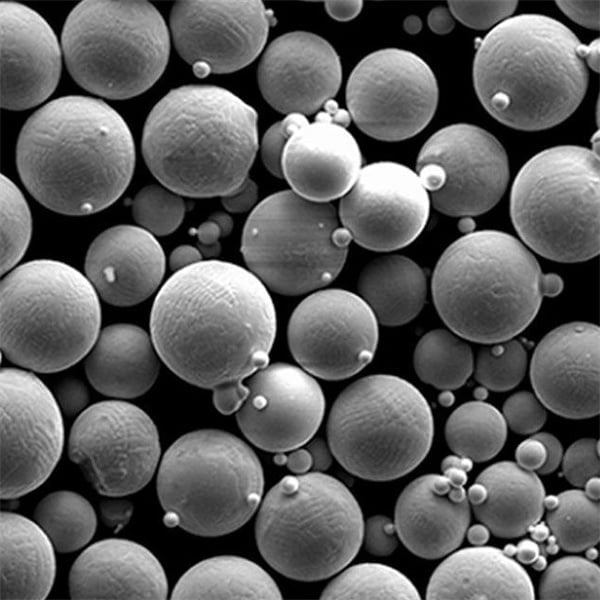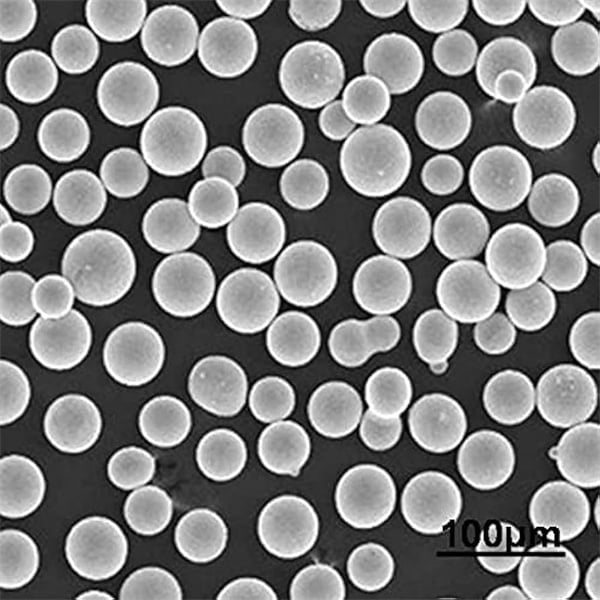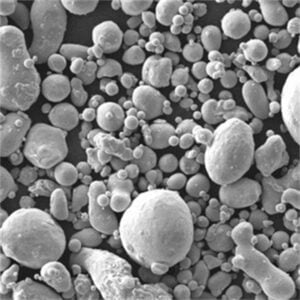When delving into the world of metallurgy, particularly titanium alloys, one standard that frequently surfaces is ASTM B348. For those in the engineering, medical, and aerospace industries, this standard is a cornerstone, providing guidelines for the production of titanium and titanium alloy bars and billets. In this comprehensive guide, we’ll explore the nuances of ASTM B348, its various grades, applications, and much more.
Overview of ASTM B348
ASTM B348 is a specification standard by the American Society for Testing and Materials (ASTM) that outlines the requirements for titanium and titanium alloy bars and billets. This standard ensures the quality and consistency of titanium products used in critical applications.
Key Details
- Standard Title: ASTM B348 – Standard Specification for Titanium and Titanium Alloy Bars and Billets
- Scope: Covers chemical composition, mechanical properties, and dimensional tolerances for titanium bars and billets.
- Applications: Widely used in aerospace, medical, marine, and industrial sectors.

Types and Composition of ASTM B348 Titanium Alloys
Titanium alloys under ASTM B348 are classified into various grades, each with a unique chemical composition tailored to specific applications. Below, we present a detailed table of common titanium grades, their chemical compositions, and key properties.
Common Grades and Their Compositions
| Grade | Composition | Properties |
|---|---|---|
| Grade 1 | Ti ≥ 99.5% | Low strength, high ductility, excellent corrosion resistance |
| Grade 2 | Ti ≥ 99.2%, Fe ≤ 0.3%, O ≤ 0.25% | Good balance of strength and ductility, excellent corrosion resistance |
| Grade 3 | Ti ≥ 99.0%, Fe ≤ 0.3%, O ≤ 0.35% | Higher strength than Grade 2, good ductility, corrosion resistance |
| Grade 4 | Ti ≥ 99.0%, Fe ≤ 0.5%, O ≤ 0.4% | Highest strength among commercially pure grades, good ductility, corrosion resistance |
| Grade 5 (Ti-6Al-4V) | Ti, 6% Al, 4% V | High strength, heat treatable, excellent fatigue resistance, used in aerospace |
| Grade 7 | Ti, 0.12-0.25% Pd | Similar to Grade 2, with enhanced corrosion resistance due to palladium |
| Grade 9 (Ti-3Al-2.5V) | Ti, 3% Al, 2.5% V | Medium strength, good weldability, used in aerospace and industrial applications |
| Grade 11 | Ti, 0.12-0.25% Pd | Similar to Grade 1, with added palladium for enhanced corrosion resistance |
| Grade 12 | Ti, 0.3% Mo, 0.8% Ni | Good strength, excellent corrosion resistance in reducing and oxidizing environments |
| Grade 23 (Ti-6Al-4V ELI) | Ti, 6% Al, 4% V (Extra Low Interstitials) | Improved fracture toughness, used in medical implants |
Characteristics of ASTM B348 Titanium Alloys
Mechanical Properties
The mechanical properties of titanium alloys are a critical consideration for their selection in various applications. The table below summarizes the key mechanical properties of different ASTM B348 grades.
| Grade | Yield Strength (MPa) | Tensile Strength (MPa) | Elongation (%) | Hardness (HRC) |
|---|---|---|---|---|
| Grade 1 | 170 | 240 | 24 | 50 |
| Grade 2 | 275 | 345 | 20 | 65 |
| Grade 3 | 380 | 450 | 18 | 80 |
| Grade 4 | 485 | 550 | 15 | 90 |
| Grade 5 | 895 | 950 | 10 | 35 |
| Grade 7 | 275 | 345 | 20 | 65 |
| Grade 9 | 620 | 720 | 15 | 40 |
| Grade 11 | 170 | 240 | 24 | 50 |
| Grade 12 | 438 | 550 | 18 | 75 |
| Grade 23 | 825 | 900 | 15 | 30 |
Corrosion Resistance
Titanium’s renowned corrosion resistance is due to a thin oxide layer that forms on its surface. This makes it ideal for use in harsh environments, such as marine or chemical processing settings.
Density and Weight
Titanium alloys are known for their high strength-to-weight ratio. Here’s a quick comparison:
| Grade | Density (g/cm³) |
|---|---|
| Grade 1 | 4.51 |
| Grade 2 | 4.51 |
| Grade 3 | 4.51 |
| Grade 4 | 4.51 |
| Grade 5 | 4.43 |
| Grade 7 | 4.51 |
| Grade 9 | 4.47 |
| Grade 11 | 4.51 |
| Grade 12 | 4.54 |
| Grade 23 | 4.43 |
Applications of ASTM B348 Titanium Alloys
Aerospace Industry
Titanium alloys are indispensable in aerospace applications due to their excellent strength-to-weight ratio, corrosion resistance, and ability to withstand high temperatures.
| Application | Grade |
|---|---|
| Aircraft frames | Grade 5 |
| Engine components | Grade 5 |
| Fasteners | Grade 9 |
| Landing gear | Grade 23 |
Medical Field
In the medical field, titanium’s biocompatibility and corrosion resistance make it ideal for implants and surgical instruments.
| Application | Grade |
|---|---|
| Hip and knee implants | Grade 23 |
| Dental implants | Grade 4 |
| Surgical instruments | Grade 1 |
Marine and Industrial Applications
Titanium’s resistance to seawater and industrial chemicals makes it a top choice for marine and industrial applications.
| Application | Grade |
|---|---|
| Offshore drilling rigs | Grade 2 |
| Heat exchangers | Grade 12 |
| Chemical processing equipment | Grade 7 |
Specifications, Sizes, and Standards of ASTM B348
Titanium bars and billets under ASTM B348 come in various sizes and specifications to meet diverse industry needs. Below is a detailed table of common specifications.
| Specification | Range |
|---|---|
| Diameter (bars) | 0.25 to 10 inches |
| Length (bars) | Up to 20 feet |
| Weight (billets) | Up to 15,000 pounds |
| Tolerances | As per ASTM B348 |
Grades and Standards
ASTM B348 encompasses various grades, each meeting specific standards for composition and mechanical properties.
| Grade | Standard |
|---|---|
| Grade 1 | ASTM B348 |
| Grade 2 | ASTM B348 |
| Grade 5 | ASTM B348 |
| Grade 9 | ASTM B348 |
| Grade 23 | ASTM B348 |
Suppliers and Pricing Details
When sourcing titanium alloys, selecting a reliable supplier is crucial. The table below lists prominent suppliers and indicative pricing.
| Supplier | Grade | Price (USD per kg) |
|---|---|---|
| Titanium Industries Inc. | Grade 2 | $30 |
| VSMPO-AVISMA | Grade 5 | $50 |
| ATI Metals | Grade 23 | $70 |
| RTI International Metals | Grade 9 | $45 |
| Baoji Titanium Industry Co., Ltd. | Grade 4 | $35 |
Pros and Cons of ASTM B348 Titanium Alloys
Every material has its strengths and weaknesses. Here, we compare the advantages and limitations of ASTM B348 titanium alloys.
Advantages
- High Strength-to-Weight Ratio: Titanium alloys offer exceptional strength while being relatively lightweight, making them ideal for aerospace and medical applications.
- Corrosion Resistance: Titanium’s resistance to corrosion in various environments ensures longevity and reliability.
- Biocompatibility: Suitable for medical implants due to its compatibility with the human body.
Limitations
- Cost: Titanium alloys are more expensive compared to other metals like steel or aluminum.
- Machinability: Titanium can be challenging to machine, requiring specialized tools and techniques.
- Availability: While widely used, high-grade titanium alloys might have longer lead times due to complex production processes.
Detailed Comparisons and Insights
Grade 5 vs. Grade 9: Which is Better for Aerospace?
Grade 5 (Ti-6Al-4V) and Grade 9 (Ti-3Al-2.5V) are both popular in the aerospace sector. Grade 5, known for its high strength and heat treatability, is ideal for critical components like engine parts and airframes. In contrast, Grade 9, with its good weldability and medium strength, is often used in hydraulic systems and airframes. While Grade 5 offers superior strength, Grade 9 provides better form
ability and welding characteristics.
Medical Implants: Grade 23 Compared to Grade 4
For medical implants, Grade 23 (Ti-6Al-4V ELI) is often preferred over Grade 4 due to its extra-low interstitials, which improve fracture toughness and fatigue resistance. Grade 4, being a commercially pure titanium, offers excellent biocompatibility but lacks the enhanced mechanical properties of Grade 23. Therefore, Grade 23 is typically chosen for high-stress implants like hip and knee replacements.

FAQ
| Question | Answer |
|---|---|
| What is ASTM B348? | ASTM B348 is a standard specification for titanium and titanium alloy bars and billets, detailing requirements for chemical composition, mechanical properties, and dimensional tolerances. |
| Which industries use ASTM B348 titanium alloys? | These alloys are widely used in aerospace, medical, marine, and industrial applications. |
| What are the key properties of ASTM B348 titanium alloys? | High strength-to-weight ratio, excellent corrosion resistance, and biocompatibility are some of the key properties. |
| How does Grade 5 titanium compare to Grade 9? | Grade 5 has higher strength and heat treatability, making it suitable for critical aerospace components, while Grade 9 offers better weldability and formability. |
| Why is Grade 23 titanium preferred for medical implants? | Grade 23, with extra-low interstitials, provides superior fracture toughness and fatigue resistance, making it ideal for high-stress medical implants. |
Conclusion
ASTM B348 is a vital standard for the production of high-quality titanium and titanium alloy bars and billets. Understanding the various grades, their properties, and applications helps in selecting the right material for specific needs. Whether you’re in aerospace, medical, marine, or industrial sectors, ASTM B348 titanium alloys offer unmatched performance, durability, and reliability.
By carefully considering the unique requirements of each application and the specific characteristics of each grade, industries can harness the full potential of titanium, ensuring the success and longevity of their projects.
















